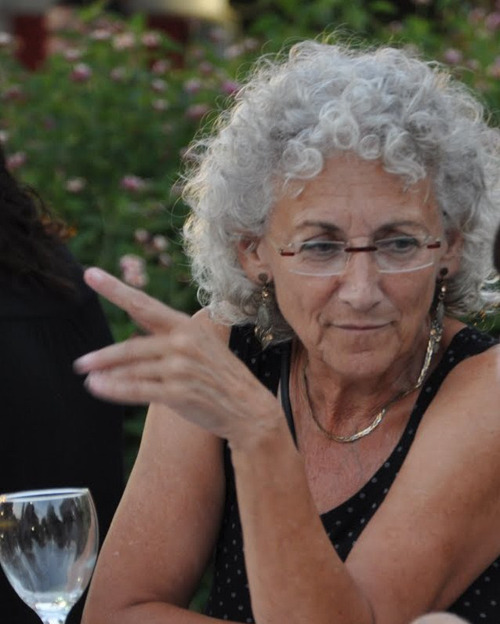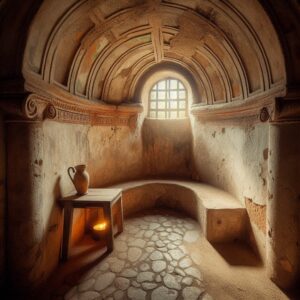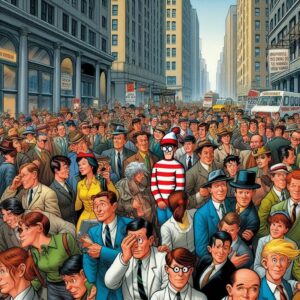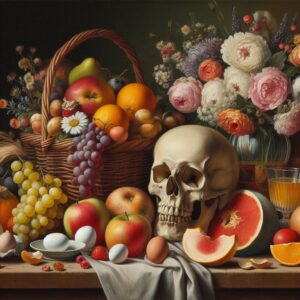
Next week we will celebrate Hanukkah at my son’s school. We come equipped with David Adler’s The Story of Hanukkah, svivonim (dreidels) and, if we can make the trek to the wonderful vegan bakery, delicious donuts. I read online that many Israelis feel such despair that they have no desire to celebrate the holiday; it is a holiday purportedly celebrating a miracle involving a religious uprising and the parallels and antagonisms to the murderous energies, failed leadership, and dread about what’s coming are too painful.
Perhaps folks might find something psychologically useful and encouraging from an alternative reason to celebrate the holiday, which can be found in Bavli Avodah Zarah 8a 7-8. My beloved high school teacher Aviva Sela (in the picture above) taught me this story as she was battling cancer as we talked about witchcraft, ritual, and encouragement (here is an incredible interview she gave at a radio show, which showcases what a one-of-a-kind person she was.) Leave it to her to imbue the holiday with sensitive psychological meaning. In any case, here’s the story:
לפי שראה אדם הראשון יום שמתמעט והולך אמר אוי לי שמא בשביל שסרחתי עולם חשוך בעדי וחוזר לתוהו ובוהו וזו היא מיתה שנקנסה עלי מן השמים עמד וישב ח’ ימים בתענית [ובתפלה]. כיון שראה תקופת טבת וראה יום שמאריך והולך אמר מנהגו של עולם הוא הלך ועשה שמונה ימים טובים לשנה האחרת עשאן לאלו ולאלו ימים טובים
When Adam the first man saw that the day was progressively diminishing, as the days become shorter from the autumnal equinox until the winter solstice, he did not yet know that this is a normal phenomenon, and therefore he said: Woe is me; perhaps because I sinned the world is becoming dark around me and will ultimately return to the primordial state of chaos and disorder. And this is the death that was sentenced upon me from Heaven, as it is written: “And to dust shall you return” (Genesis 3:19). He arose and spent eight days in fasting and in prayer. Once he saw that the season of Tevet, i.e., the winter solstice, had arrived, and saw that the day was progressively lengthening after the solstice, he said: Clearly, the days become shorter and then longer, and this is the order of the world. He went and observed a festival for eight days. Upon the next year, he observed both these eight days on which he had fasted on the previous year, and these eight days of his celebration, as days of festivities.
One need not be a serious sufferer of Seasonal Affective Disorder (SAD) to respond to the changing seasons with melancholy. The weather, at least here in the Northern Hemisphere, is getting colder; the days are shorter, and our kids cannot play in the playground as late as they would like; we turn our attention inward and dwell on memories past and fears of the future. The horrid weight of the last two months is compounded by the falling shadows in the afternoon; the darkness of the morning adds to the despair one feels trying to get out of bed. Lighting one more candle each day can serve as a psychological reminder that the light will return, and that we can fight even a small part of the darkness outside with a light we carry within.
Yesterday I attended kabalat shabbat at Congregation Sha’ar Zahav. The congregation commemorated the AIDS crisis and the rabbi read out a quote from Tony Kushner’s Angels in America:
This disease will be the end of many of us, but not nearly all, and the dead will be
commemorated and will struggle on with the living, and we are not going away. We won’t die secret deaths anymore. The world only spins forward. We will be citizens. The time has come.
Bye now.
You are fabulous creatures, each and every one.
And I bless you: More Life.
The Great Work Begins.
So it does for all of us in the East and West.




No comment yet, add your voice below!